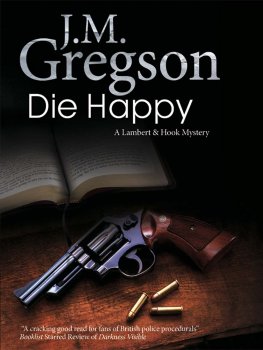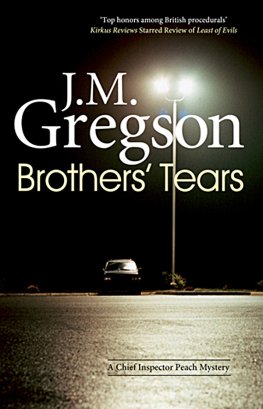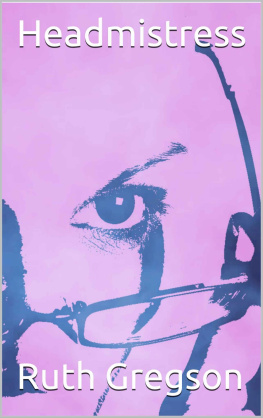J. Gregson - Die Happy
Here you can read online J. Gregson - Die Happy full text of the book (entire story) in english for free. Download pdf and epub, get meaning, cover and reviews about this ebook. year: 2011, publisher: Severn House Publishers Ltd, genre: Detective and thriller. Description of the work, (preface) as well as reviews are available. Best literature library LitArk.com created for fans of good reading and offers a wide selection of genres:
Romance novel
Science fiction
Adventure
Detective
Science
History
Home and family
Prose
Art
Politics
Computer
Non-fiction
Religion
Business
Children
Humor
Choose a favorite category and find really read worthwhile books. Enjoy immersion in the world of imagination, feel the emotions of the characters or learn something new for yourself, make an fascinating discovery.
- Book:Die Happy
- Author:
- Publisher:Severn House Publishers Ltd
- Genre:
- Year:2011
- Rating:3 / 5
- Favourites:Add to favourites
- Your mark:
- 60
- 1
- 2
- 3
- 4
- 5
Die Happy: summary, description and annotation
We offer to read an annotation, description, summary or preface (depends on what the author of the book "Die Happy" wrote himself). If you haven't found the necessary information about the book — write in the comments, we will try to find it.
J. Gregson: author's other books
Who wrote Die Happy? Find out the surname, the name of the author of the book and a list of all author's works by series.
Die Happy — read online for free the complete book (whole text) full work
Below is the text of the book, divided by pages. System saving the place of the last page read, allows you to conveniently read the book "Die Happy" online for free, without having to search again every time where you left off. Put a bookmark, and you can go to the page where you finished reading at any time.
Font size:
Interval:
Bookmark:
J. M. Gregson
Die Happy
ONE
Hindsight is a wonderful thing. Everyone says that, but it is true nonetheless. With the wonderful advantage of hindsight, Chief Superintendent John Lambert would never have accepted the assignment.
He could plead a particularly trying morning in his defence, but he knew that was no excuse; he would never have accepted it as an excuse from one of his subordinates. Policemen, and senior policemen in particular, were supposed to be able to deal with both ambitious young lawyers and wily old legal foxes. No one could quite say why, because little formal training in court procedures was afforded to policemen. This contrasted with the years of preparation undertaken by the sinuous minds which were recruited and rewarded handsomely to defend villains. Lawyers were well-paid and unscrupulous, in John Lamberts not entirely unbiased view. The law said everyone had a right to be defended, and lawyers interpreted that precept with energy and enthusiasm. Was not the most ancient principle of British law that a man was innocent until proven guilty? So long as a villain did not openly proclaim his guilt to his brief, he must be defended to the hilt as an innocent man, whatever the lawyers private opinion on the case might be.
The more vicious the criminal, the more adept and versatile his counsel was likely to be. As you progressed up the unofficial hierarchy of crime, you, or those who employed you, could afford better barristers, whilst those acting for the Crown Prosecution Service were generally less experienced, less well briefed and certainly less well paid. Policemen went into court feeling they needed a cast-iron case, because the legal odds were stacked against them.
All of this was understood in every police station in the land. Indeed, it was reiterated daily in most canteens, with the addition of a few choice adjectives and adverbs for emphasis. John Lambert had been hearing the conversation and contributing to it for thirty years now. None of it was much help when you were called as a witness in the Crown Court.
Fraud was the most complicated crime of all to prove, and it was a fraud case in which Lambert was called to appear on this bright March morning. He knew his strategy: stick to the facts, say no more than you have to say and dont allow the smooth bastards with the silly wigs to ruffle you. Lambert repeated that ancient police mantra to himself as he waited to be called. He was a tall man, taking care to walk erect and eliminate his recent tendency to stoop, carrying the carapace of experience around him as he moved to the centre of this legal drama. Yet his heart beat as hard and as fast in his seasoned chest as that of the youngest and greenest constable when he was called upon to make his way to the witness stand.
The barrister was mature and experienced in his craft, and operating in his own arena. He took Lambert steadily through the first small, mutually agreed facts of his evidence. The serious charge and the exalted setting gave a strange edge to what should have been a boring but necessary recital, with every professional in the court listening to the manner rather than the content of these brief questions and responses. Each question required no more than a three or four word affirmative. Everyone was agreed about this, the tone on both sides said. It was like watching a tiger creeping stealthily along a branch, moving nearer and nearer to the spot where it might pounce most tellingly upon its prey.
Yet there was no sense of dramatic movement when that moment came. The lawyer glanced down at his notes, as if preparing himself for one more routine query. Then he said in a voice of slightly puzzled reason, Chief Superintendent Lambert, you obtained a search warrant and then proceeded to ransack my clients home. From where you stand now, do you now consider this action an overreaction?
No. The law protects members of the public against overreaction. Search warrants are not issued without due examination of the issues involved.
A shrug of the shoulders, a slight shake of the head beneath the white curls of the wig, an amused professional smile, which counsel hoped took in the judge as well as his supporters. You need not remind us here of what the law dictates, Chief Superintendent. He ruffled his papers, then looked at Lambert, like an adult disappointed by a child who has behaved badly. Would you not agree that your team exercised excessive force and vigour in the way they conducted this search?
No. Routine procedures were applied. The search was thorough and methodical, as the circumstances demanded it should be.
Thorough and methodical. The defending counsel dwelt on each syllable, elongating the phrase to give it irony. Then, as though he were forced to raise an unpleasant matter against his will, You wouldnt attach any importance to the fact that Mr Murrays wife and daughters were terrified by the actions of your officers?
Lambert paused in his turn, looking completely calm, but struggling to shut out the murmur of excitement in the court and to find the words for a measured refutation. A degree of distress is inevitable in these situations. I would dispute the word terrified. I should also like the court to be aware that the daughters you have chosen to mention are aged nineteen and twenty-three hardly the fearful infants your question implied.
I think the court will be aware that I suggested no such thing. I should be obliged if you will confine yourself to factual answers to my questions, Chief Superintendent.
Lambert was too experienced to point out that his answer had been entirely factual. He gave the man no reaction at all, but merely stood mute and upright, awaiting further questions.
It had the desired effect. The lawyer studied him for a moment, then said, Would you not concede that your prolonged and aggressive attention to my client over several weeks was excessive? Did it not, in fact, amount to police harassment?
The well-worn, even threadbare, accusation. The word harassment came from prisoners when you had them defeated in the interview room; when it came from a lawyer, you knew that he was desperate, trying to abandon his attack without losing too much face. Lambert permitted himself a small, mirthless smile. There was no harassment involved. We conducted a methodical investigation and we observed the correct protocol. We did no more and no less than our duty to the public demanded.
The lawyer nodded, affording Lambert the patronizing smile which acknowledged in the arcane rites of the English law that the witness had successfully defended his position. He kept any disappointment out of his voice as he said briskly, No further questions.
Lambert in his turn was careful to show no sign of relief and to leave the witness stand with measured step. For him, the strange little game was over, though the case would go on for many days yet.
His mood was not improved when he returned to the police station at Oldford. His partner in anti-crime, Detective Sergeant Bert Hook, was waiting for him to lead the interrogation of a drug dealer who had been arrested over the weekend. Important, certainly, but not likely to bring any spectacular success. People like Alfie Turner were arrested every week, but they were small fish swimming in a large and murky pond. The killer sharks who controlled this evil, lucrative industry were shadowy monsters, often not even permanently resident in the UK. People like Turner, who operated the lower outlets in the trade, knew it was literally more than their lives were worth to reveal information about people higher up the chain. The anonymous bullet in a city back street, the untraceable drowning; such victims swelled the serious crime totals, with successful investigations almost impossible.
It was a situation understood on both sides of the small square table as Lambert and Hook stared into the narrow face in the interview room. Lambert did not disguise the weary indifference the situation induced in him. Low-key might be the only possibility of success: get the little scrote off his guard and then wring some unwitting admission from him. He glanced at the notes in front of him and sighed heavily. Well, Alfie, we meet yet again.
Font size:
Interval:
Bookmark:
Similar books «Die Happy»
Look at similar books to Die Happy. We have selected literature similar in name and meaning in the hope of providing readers with more options to find new, interesting, not yet read works.
Discussion, reviews of the book Die Happy and just readers' own opinions. Leave your comments, write what you think about the work, its meaning or the main characters. Specify what exactly you liked and what you didn't like, and why you think so.











